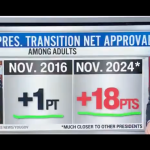More than three million Aussies have so far had their COVID-19 jabs – far short of a critical mass, let alone herd immunity – but as the proportion of our vaccinated population increases, our response to the pandemic will transform once again. INTERNATIONAL TRAVELCalls for a return to international travel are growing, with senior Liberals at both Federal and State level declaring vaccinated Australians should be able to fly again. Health Minister Greg Hunt recently said travel should “absolutely” be considered an incentive to get vaccinated, and Qantas CEO Alan Joyce has repeatedly said vaccination would be required for passengers to fly when the national carrier resumed international operations. Aviation is once again picking up worldwide, as the Northern Hemisphere comes into summer. According to global travel data company OAG, last week UK airlines increased their capacity by 73 per cent, while German carriers increased by 13 per cent and those in Spain grew by 10 per cent. Currently, it is not required for Aussies to be vaccinated in order to be granted an outward travel exemption, but on May 7, National Cabinet decided most citizens who are granted permission to fly internationally should be made eligible for the jab. Some countries that had tight quarantine restrictions for people flying in have now relaxed their rules. For example, travellers to the US only need to get tested three to five days after arrival. EASIER QUARANTINEExpensive and onerous hotel quarantine has been a mandatory requirement of entering Australia this past year. Returning travellers have had to pay $3000 for the privilege of being cooped up in a hotel room with no human contact for 14 days. But Health Minister Greg Hunt has stressed quarantine arrangements will likely be eased for Australians who are vaccinated. “It is foreseeable that there will be lesser requirements on those who are coming into Australia if they have been vaccinated,” he said earlier this month. “And I think that’s a very important incentive, and a point of hope, and a pathway to normalisation.”While the details are still to be worked out, it is likely vaccinated travellers could quarantine at home, and possibly for shorter periods of time. NED-3850-Vax-A-Nation-Booklet-BannerPUBLIC EVENTSMany jurisdictions around the world are trialling versions of a vaccine passport in public settings. In Hong Kong, patrons of bars and nightclubs must provide proof they have had at least one shot of a vaccine. In Israel, a “Green Pass” is essential for entry to gyms, swimming pools, eateries, hotels, sporting venues, cinemas, theatres, galleries and museums. And in New York State, the “Excelsior Pass” – which is digital proof of vaccination status or negative COVID-19 test results – enables the bearer to enter sporting venues and restaurants. In the UK, public health officials are using raves and gigs in Liverpool as case studies in how mass events can proceed with a minimum of risk. Attendees at the pilot events were tested the day before the event, and after it, to check any possible cases of transmission. At least one Australian Premier has suggested vaccination could become a condition of entry for hospitality venues, but it is unclear whether such schemes would be supported here.MASK MANDATESThe US Centers for Disease Control in mid-May relaxed the public mask mandate for Americans who had received a COVID-19 vaccination – except for people travelling on public transport or in hubs such as airports and train stations. In the UK, where just over 30 per cent of the population are now fully vaccinated, mask mandates remain in place, although they were relaxed this week for secondary school students. In Australia, mask mandates have tended to be shorter in duration and targeted to specific outbreaks. Different states and territories are likely to take a different approach to offering exemptions. BORDER CLOSURESSnap border closures have been one of the most contentious parts of Australia’s COVID-19 response, and a power state premiers will not give up easily, but the prospect of exemptions could prove to be a powerful incentive for many Aussies to get the jab. NT Chief Minister Michael Gunner said this week restrictions such as border closures could be eased once the community had achieved herd immunity. HOTSPOT LOCKDOWNSCould vaccine recipients be exempted from future lockdown orders? It’s an appealing idea, but would likely play out differently in each state and territory, if only because the definition of a hotspot has been different in each jurisdiction. But the states have so far been circumspect on the issue. When asked if COVID-19 vax recipients could be exempted from future lockdowns, the NSW Premier’s office declined to respond, saying the issue was still hypothetical. AGED CARE AND HOSPITALSWith strict caps on visitor numbers, and occasional bans on visitors altogether, the past year has not been a good time to be unwell, about to give birth, or a resident of an aged care facility. But hopes are high that increased rates of vaccination will see a return to normal in our health institutions. The overseas experience suggests that return could be slow, with hospitals and aged care facilities in the US and UK just now easing their restrictions on visitors. Aged and Community Services Australia CEO Patricia Sparrow said the question of whether a vaccination should be mandatory for visitors to aged care facilities was a question for government, but the sector would “continue to follow the guidelines and direction of relevant health authorities”. STATUS SIGNIFIER“Vaxxie” – the vaccination selfie – may well prove to be one of the words of 2021, with politicians in particular very keen to record themselves bravely baring their upper arms for the needle. Data from Australian Tinder suggests vaccination status is becoming an increasing concern – at least for those on the dating scene who want to know whether prospective partners have had the jab. Mentions of the word “vaccine” in Australian Tinder bios jumped 50 per cent over the past year, the company revealed. A Reuters/Ipsos survey from the US in March revealed 72 per cent of respondents wanted to know the vaccination status of people around them, and 62 per cent said unvaccinated people should not be allowed to travel on aeroplanes. Given Australia’s smaller outbreak, we may have a more relaxed approach to vaccination status than the Americans. But it does seem as though vax status – our own and other people’s – will become an increasingly normal part of life as we emerge from the COVID-19 crisis.
Powered by WPeMatico






